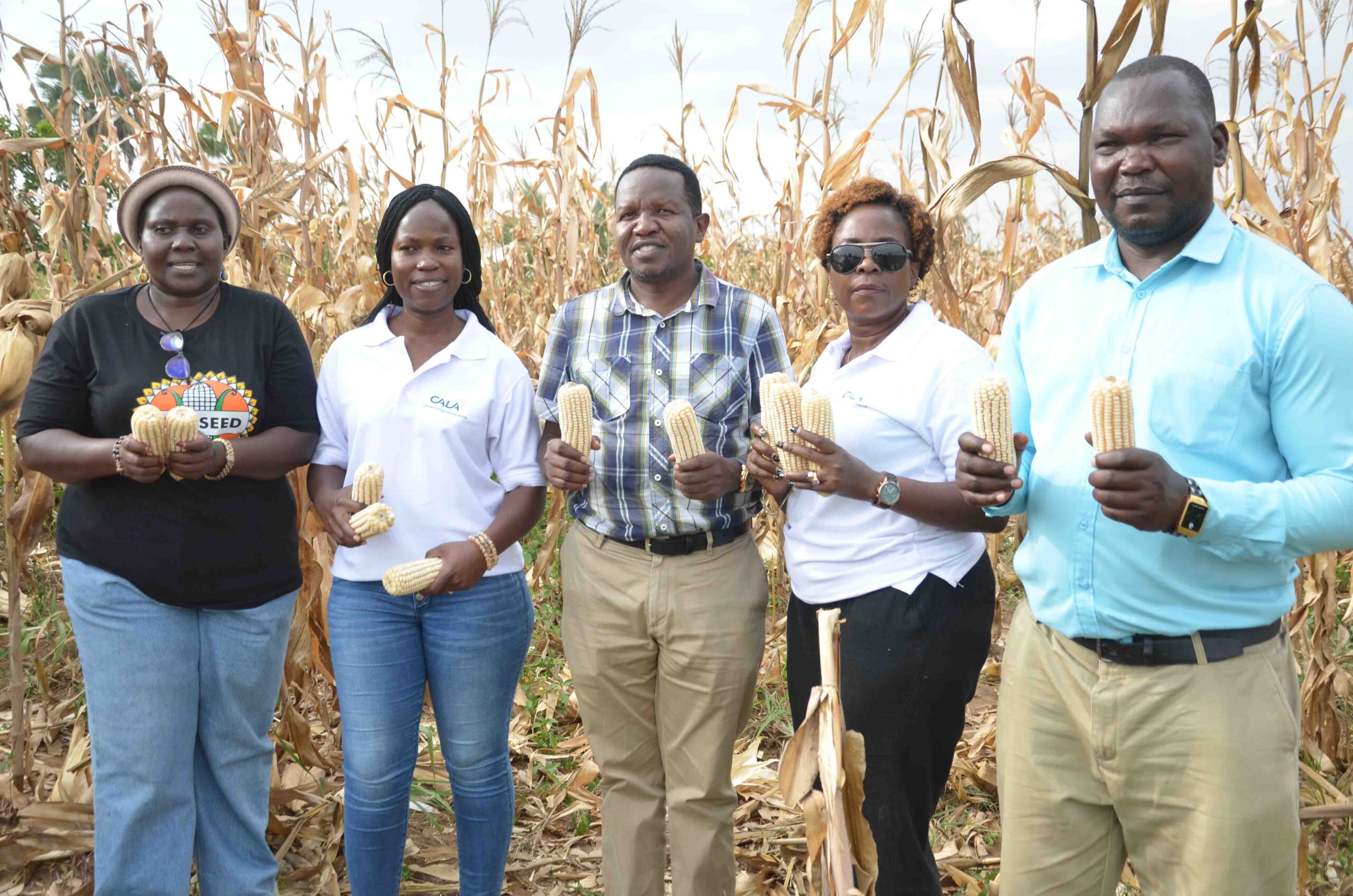LIRA, January 14, 2025 — The Centre for African Leaders in Agriculture [ CALA ] has developed a targeted strategy to combat the issue of counterfeit seeds in Agali Subcounty, Lira district, a challenge that has severely affected local farmers.
CALA supports sector leaders to deliver on top national priorities in African agriculture and nutrition security. These leaders represent a wide range of key actors from across government, private sector, and civil society.
The organisation highlighted that counterfeit seeds lead to poor crop yields, reduced production, and increased food insecurity, which in turn diminishes farmers’ incomes.
Caroline Wamono, Regional Manager at ABI Development and a delegate of CALA, emphasised the severity of the problem, noting that 60 percent of seeds in Uganda are counterfeit. This issue is a critical concern for farmers, threatening their livelihoods.
The assessment team, including Dr. Teddy Mary Asio, Assistant Commissioner for Seed Inspection and Certification at the Ministry of Agriculture, Animal Industry and Fisheries, was evaluating the impact of the village agent model trained by CALA in the region. This model is designed to reduce the circulation of fake seeds by empowering local agents.
A total of 17 village agents have been trained in areas such as financial literacy, the safe use of agricultural chemicals, and agronomy.
Benson Otim, the programme’s Focal Point Person, explained that the initiative aims to equip leaders across Africa to address country-specific challenges and provide them with the tools necessary to identify problems and implement solutions.
Wamono explained that while the initiative may not completely eliminate counterfeit seeds, it is creating an environment that makes dealing in fake seeds less profitable. By ensuring that farmers can access high-quality seeds and differentiate them from counterfeit varieties, the initiative discourages those involved in selling counterfeit products.
“We’re not completely eradicating counterfeit seeds, but we’re making it an unprofitable business,” Wamono stated. “If farmers can easily access quality seeds and recognize the difference, it reduces the market for counterfeit products.”
The overarching goal of the program is to ensure farmers have access to affordable, high-quality seeds, which will ultimately improve crop production.
Asio, also a CALA delegate, urged farmers, extension staff, and local leaders to provide information to enforcement authorities so that appropriate action can be taken against those involved in the counterfeit seed trade.
She also reminded stakeholders that by law, all seed dealers in Uganda must be registered with the Ministry of Agriculture. However, she pointed out that many individuals engage in the seed trade without proper certification.
“It starts with registration for any seed dealer in Uganda, as required by law. Yet, many people enter the seed business without following the proper standards,” she added.
Racheal Elayi, a resident of Anyapo village, shared her success story, saying that after receiving advice from a village agent, she purchased 2 kilos of improved maize seeds and was able to harvest 10 bags. Before participating in the program, she struggled to access quality seeds and typically harvested only 2 to 3 bags per hectare when using uncertified seeds.
Through CALA’s initiative, farmers in the region are gaining the knowledge and support they need to make informed decisions about seed selection, leading to higher yields and improved livelihoods.
